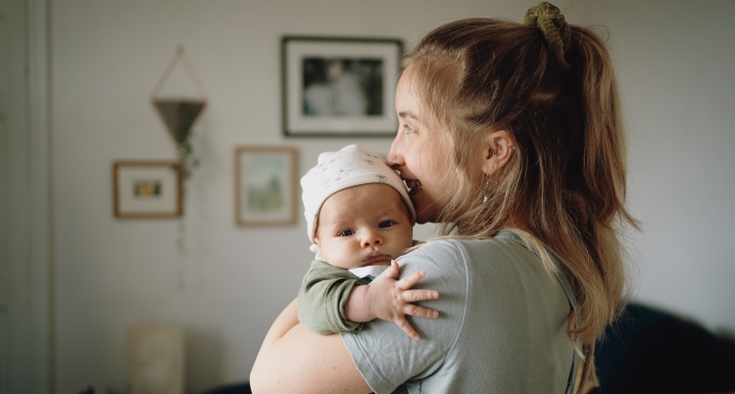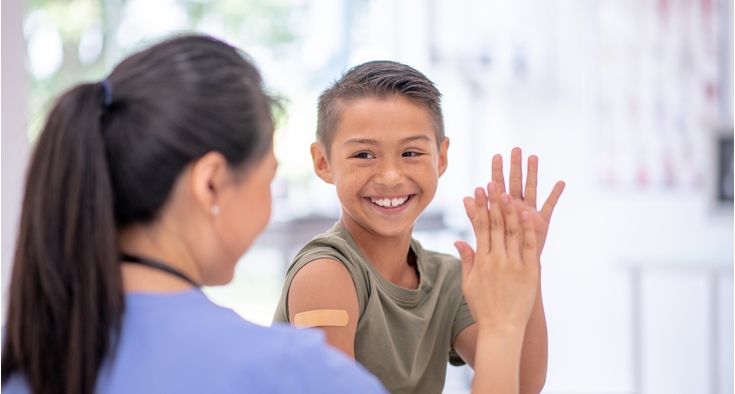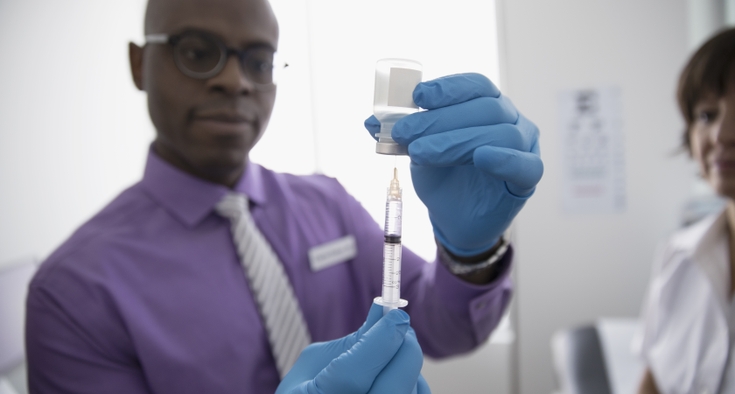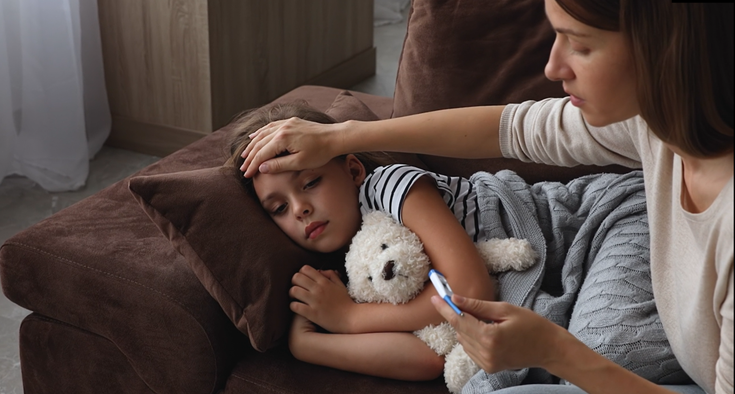It’s easy to feel anxious about the spreading measles outbreak if you have kids who have not been vaccinated yet – or fully vaccinated – for measles. More than 1,200 cases, including three deaths of unvaccinated children, have been reported in the United States between June and January 2025. By comparison, in all of 2005 there were only 66 cases.
Measles is a highly contagious, deadly disease with symptoms such as high fever and a red-spotty rash that is respiratory-spread, or spread through the air and breath.

“Measles causes serious complications for 20% to 30% of people who get infected, and it’s one of the most contagious diseases,” said Dr. Sameena Hassan, pediatrician with Novant Health Dilworth Pediatrics in Charlotte.
The measles vaccines (and boosters) are incredibly effective, but most kids don’t get their first vaccine until age one, with the second dose coming years later. So, should we be rushing to get our young kids fully vaccinated?
Find the pediatrician you and your baby deserve
The short version for parents of kids in the U.S. (as of March 2025): There is no reason to worry about vaccinating your kids earlier than the standard schedule – unless you are living in or planning to travel to an area of known outbreak or are planning to travel internationally. North Carolina reported it's first case on June 24, but Hassan said her advice holds for the time being.
“There’s no reason to panic,” Hassan said. “It’s something to watch, it’s something to think about, but concern and anxiety about it probably shouldn’t consume your days.”
Hassan gets deeper into the details and answers eight questions about the measles vaccines.
When do kids usually get the measles vaccine?
The standard schedule and recommendations for the vaccines have not changed – despite the recent outbreaks – and are not likely to change any time soon.
● Generally, kids get the first MMR (measles, mumps and rubella) vaccine for between
● They get the second vaccine between 4 to 6 years of age.
What’s in the measles vaccine?
The MMR vaccine contains live virus strains and targets measles, mumps and rubella. Rubella, also called German measles, is a similar viral infection that largely affects the salivary glands and has symptoms like swelling in the jaw and cheeks. The second dose of the MMR vaccine is typically the MMRV vaccine, which includes one more protective agent against varicella, or chickenpox. Chickenpox also has symptoms including fever and itchy rash.
How effective is the measles vaccine for kids?
The measles vaccine is excellent at offering protection, and it’s protective for communities as a whole to vaccinate your child. The first dose provides
Is it OK for a baby to get several vaccines in one vaccine batch?
Yes, this is standard and makes it possible for a child to get multiple vaccines in one needle poke instead of many needle pokes. It’s not too much for a child’s body or immune system to handle.
Why do kids have to wait until 1 year old for the measles vaccine?
The shot doesn’t effectively last long
When should you consider the measles vaccines for your child before age 1?
There are three instances where it would be recommended for a child under the age of 1 to get an early measles vaccine:
● There’s a measles outbreak in that child’s community.
● The child has had a known exposure to measles, which would be highly unusual.
● The child will be traveling internationally. In this case, the child should be vaccinated two weeks prior to travel, because that’s about how long it takes for the vaccine to become effective.
Can a child get the second dose of the measles vaccine early?
Yes, the second vaccine can be given
What should you do if your kid has measles symptoms like fever, rash and runny nose?
Don’t panic and assume it’s measles. This is an incredibly common constellation of symptoms for a lot of common, non-scary viruses that a child can usually recover from without medication. Also don’t immediately take them to a pediatric office or urgent care waiting room – call your pediatrician and share your concerns before.
Women and the MMR vaccine
Why doctors hope unvaccinated women considering pregnancy will get the MMR vaccine:
Source: U.S. National Institutes of Health – Measles, mumps and rubella










